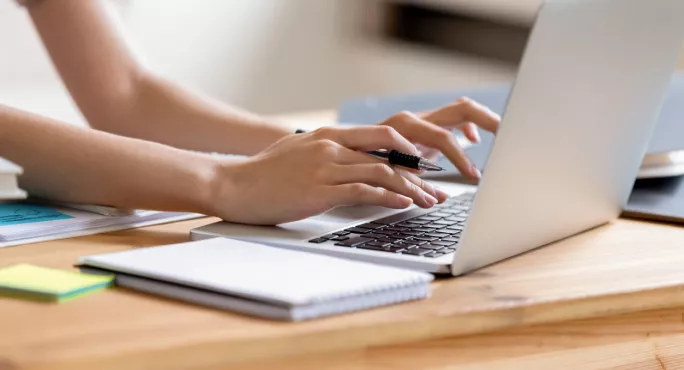Leading independent schools have called on the government to ensure that every pupil in the country has a laptop they can learn on.
The Headmasters’ and Headmistresses’ Conference (HMC), representing elite UK private schools, used a Tes interview to call for the move, which it believes will help to address the digital divide amongst all children during the coronavirus pandemic.
Simon Hyde, HMC general secretary, said that the pandemic had exacerbated the divide between the “most fortunate” and pupils who lacked access to remote learning because they did not have laptops or other devices.
Remote learning: Anger at ‘massive’ DfE cut to school laptop allocations
Revealed: How DfE free laptops failed to match need
Coronavirus: DfE misses free laptops target by nearly 30,000
News: Schools can’t order free laptops for pupils on rotas
Over the weekend state school heads expressed their anger as the Department for Education announced that it was slashing their coronavirus laptop allocations by 80 per cent, just as they broke up for half-term.
But even their original allocations were not supposed to cater for every pupil. Dr Hyde is arguing that the government should go much further and level state pupils up with those in HMC schools where “almost all pupils have access to devices”.
Coronavirus: Why all pupils should have laptops
“One of the things the pandemic has done is to exacerbate the divide between those people who are the most fortunate - whether they exist in the state sector or the private sector - and some people whose experience, their educational journey has been seriously adversely affected by the pandemic, either because of access to remote teaching or access to a computer,” he told Tes, speaking before the news about the cuts to allocations.
“One of my aspirations is for a commitment in our society moving forward that all children must have some form of laptop device.”
Dr Hyde, previously head of King’s School Macclesfield, said that providing all pupils who needed laptops with them should be an investment priority for the government.
“Hopefully this will future-proof the system if something like the pandemic recurs,” he said. “I think the greater awareness of that disparity will hopefully lead to some serious thinking about how to address this moving forward.
“Clearly there are significant costs but there’s also a huge cost not to do this: having fellow citizens who are not educated to the standard you need them to be for your society.
“So I hope it will be a priority for investment. Whilst the government rightly wants schools to provide remote teaching, that provision is only going to be successful if it can be accessed and funded.
“I think we know there are people who are struggling. How practically you deliver the solution and how costs are apportioned are political decisions. My contention, as an educationalist, is that this is an important tool to aid learning, a basic requirement.
“Evidence from my members’ schools’ surveys suggests that almost all pupils have access to devices: providing firm foundations for their remote-learning strategies.”
The government’s scheme to provide free laptops to disadvantaged pupils ran into difficulties earlier this year, after it was revealed that 13 councils had shortfalls in laptop allocations.
And this month, Tes reported that secondary schools operating a rota system in local lockdown areas would not be allowed to order laptops for disadvantaged pupils.
The Department for Education has been contacted for comment.




